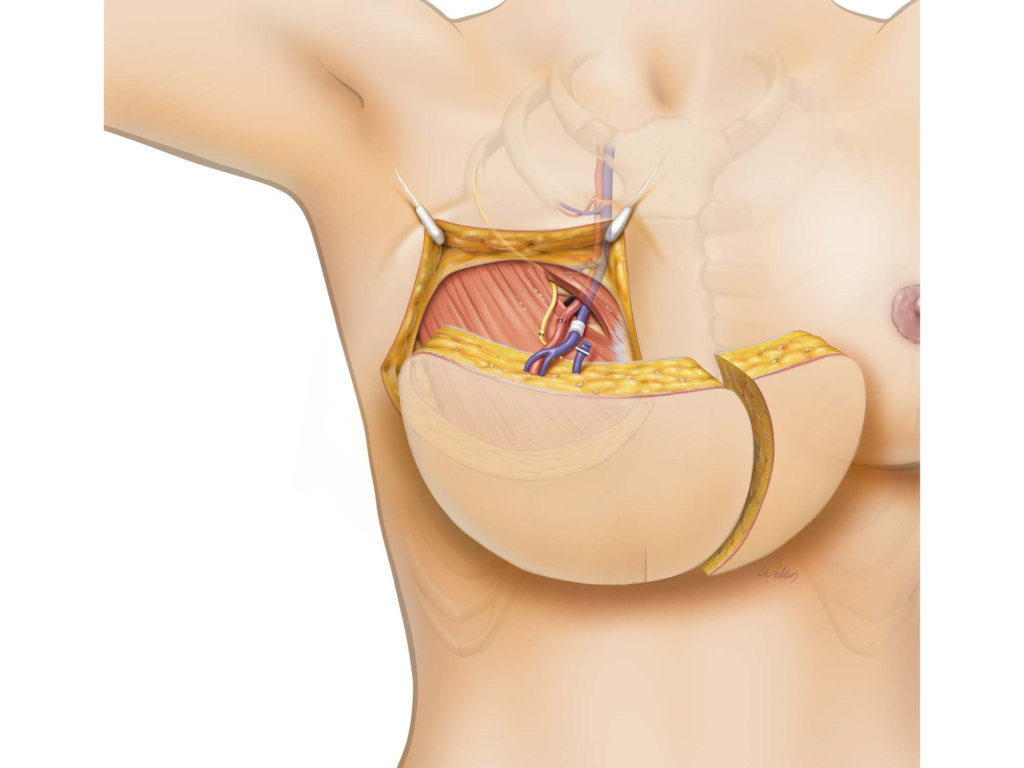restoreBreast Resensation
Consultation RequestResensation
At the Center for Breast Restoration, improving patient quality of life after breast cancer is our top priority. Numerous studies have shown that the presence of sensation in the reconstructed breast can improve patient quality of life after having a mastectomy.
Nerve Regeneration
If a patient elects to have breast reconstruction using their own natural tissue, studies have shown that nerves will grow into the tissue that is transplanted. This may result in the return of some skin sensation to the new breast.
Please follow the link for more information regarding using your own tissue for breast reconstruction.
Breast Resensation
Dr. Spiegel has spent a great deal of time working on improving techniques for restoring lost sensation to the breast following a mastectomy.
Although some nerves may grow into the tissue that is transplanted during breast reconstruction, this nerve growth happens very gradually and is only observed in about 50% of patients.
Dr. Spiegel takes sensation a step further by reconnecting the nerve that is cut during the mastectomy, a procedure that is called neurotization or resensation.
Dr. Spiegel’s approach to breast resensation has garnered much attention from the medical community. She routinely neurotizes, or innervates, DIEP flaps during reconstruction by harvesting a donor nerve from the abdomen and reconnecting this nerve to the chest to supply sensation to the breast. Her work on sensation recovery with DIEP Flap neurotization was presented at the annual meeting for the European Association of Plastic Surgery.

This is an example of a neurotized DIEP flap reconstruction. Skin and fatty tissue are transferred from the abdomen to the chest to reconstruct the breast after a mastectomy.
A sensory nerve (see left small yellow vessel) is taken from the abdomen and connected to the chest using a microscope in the resensation procedure.
Post Mastectomy Breast & Nipple Sensation
The loss of breast and nipple sensation after a mastectomy is not abnormal. During a mastectomy, the nerve that supplies sensation to the breast is cut in order to allow the surgeon to remove all of the breast tissue. This leaves the patient with decreased and sometimes complete loss of sensation to the breast.
The amount of sensation lost after a mastectomy varies from patient to patient, and is dependent on multiple factors, including the type of mastectomy performed.
